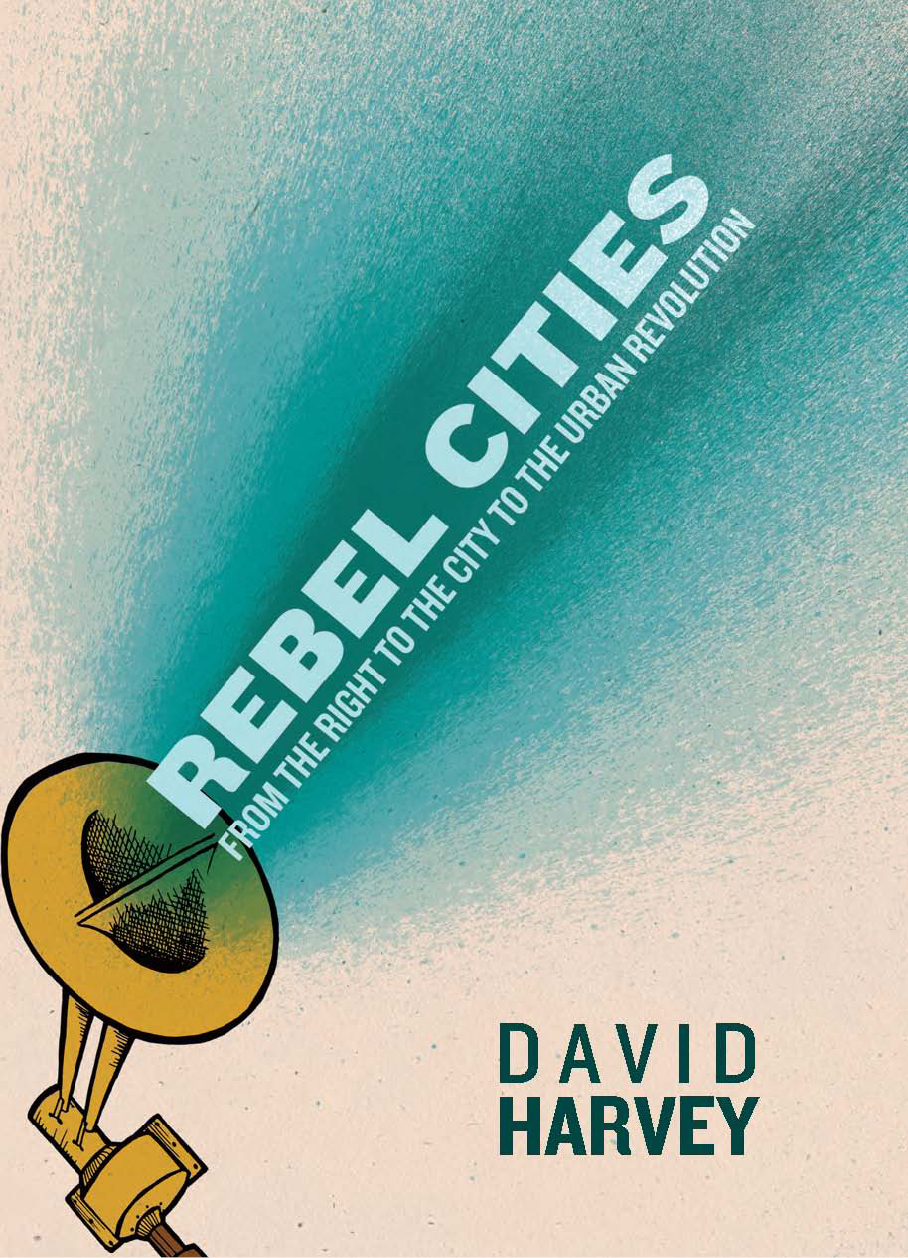David Harvey: The Enigma of Capital And the Crises of Capitalism (2010)
Filed under book | Tags: · capitalism, economy, financial crisis, labour, market, peak oil, politics

For over forty years, David Harvey has been one of the world’s most trenchant and critical analysts of capitalist development. In The Enigma of Capital, he delivers an impassioned account of how unchecked neoliberalism produced the system-wide crisis that now engulfs the world.
Beginning in the 1970s, profitability pressures led the capitalist class in advanced countries to shift away from investment in industrial production at home toward the higher returns that financial products promised. Accompanying this was a shift towards privatization, an absolute decline in the bargaining power of labor, and the dispersion of production throughout the developing world. The decades-long and ongoing decline in wages that accompanied this turn produced a dilemma: how can goods–especially real estate–sell at the same rate as before if workers are making less in relative terms? The answer was a huge expansion of credit that fueled the explosive growth of both the financial industry and the real estate market. When one key market collapsed–real estate–the other one did as well, and social devastation resulted.
Harvey places today’s crisis in the broadest possible context: the historical development of global capitalism itself from the industrial era onward. Moving deftly between this history and the unfolding of the current crisis, he concentrates on how such crises both devastate workers and create openings for challenging the system’s legitimacy. The battle now will be between the still-powerful forces that want to reconstitute the system of yesterday and those that want to replace it with one that prizes social justice and economic equality.
Publisher Oxford University Press, 2010
ISBN 0199758719, 9780199758715
296 pages
PDF (PDF)
PDF (EPUB)
PDF (MOBI)
Fredy Perlman: The Reproduction of Daily Life (1969-) [EN, CR, PT, FR]
Filed under book | Tags: · alienation, capitalism, economy, everyday, labour, life, production, reproduction, society, value
What sustains Capitalism? Our acceptance of everyday activities. The text offers a clear introduction to basic Marxist concepts like commodity fetishism, and surplus value; it also traces the transformation of human activity into capital. It opens with the observation “that everyday practical activity of tribesmen reproduces, or perpetuates, a tribe.”
Publisher: Black & Red, Detroit, 1969, 24 pages. Reprinted in Anything Can Happen, October 1992, Phoenix Press, PO Box 824 London N1 9DL.
Croatian edition: Reprodukcija svakodnevnog života. Translated by Aleksa Golijanin, 2003. Anti-copyright.
Portuguese edition: A Reprodução do Quotidiano. Translated from Treason Press edition (2004), in February 2009, Edições Versus Capitalismus. Anti-copyright.
French edition: La Reproduction de la Vie Quotidienne. Published by Ravage Éditions, Paris, September 2011. Anti-copyright.
about the author (wikipedia)
publisher
google books
PDF (English, multiple formats)
PDF (Croatian, multiple formats)
PDF (Portuguese, PDF)
PDF (French, multiple formats)
David Harvey: Rebel Cities: From the Right to the City to the Urban Revolution (2012–) [EN, ES]
Filed under book | Tags: · activism, capitalism, city, commons, culture, economy, labour, neoliberalism, occupy movement, politics, production, resistance, revolution, social movements, theory of value

“Long before the Occupy movement, modern cities had already become the central sites of revolutionary politics, where the deeper currents of social and political change rise to the surface. Consequently, cities have been the subject of much utopian thinking. But at the same time they are also the centers of capital accumulation and the frontline for struggles over who controls access to urban resources and who dictates the quality and organization of daily life. Is it the financiers and developers, or the people?
Rebel Cities places the city at the heart of both capital and class struggles, looking at locations ranging from Johannesburg to Mumbai, and from New York City to São Paulo. Drawing on the Paris Commune as well as Occupy Wall Street and the London Riots, Harvey asks how cities might be reorganized in more socially just and ecologically sane ways—and how they can become the focus for anti-capitalist resistance.”
Publisher Verso Books, London, 2012
ISBN 1844679047, 9781844679041
216 pages
Reviews: Owen Hatherley (The Guardian, 2012), Ruth Lorimer (Socialist Review, 2012), Lewis Beardmore (Open Democracy, 2012), Justin McGuirk (Art Review, 2012), more.
Rebel Cities (English, updated on 2020-11-28)
Ciudades rebeldes (Spanish, trans. Juanmari Madariaga, 2013, added on 2020-11-28)

